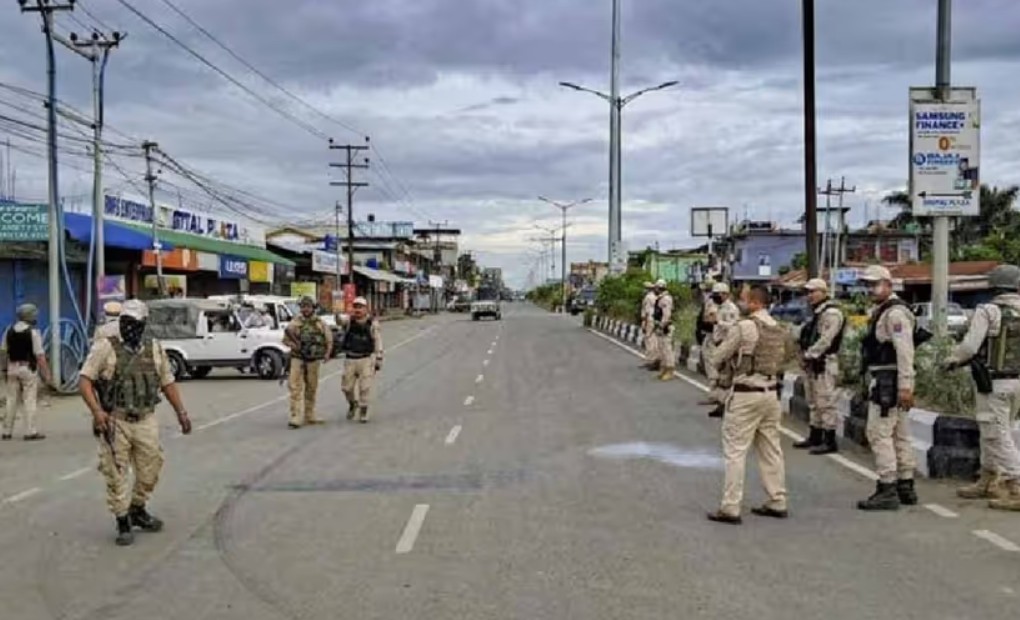There was a great deal of truth in the often-heard charge that paralysing Imphal for months by the myriad strikers and habitual bandh callers is no less serious or atrocious than economic blockade on the national highways by protesters in the hills. If those on the lower ends of the national highways which serves as the lifelines of the state, in particular the thickly populated Imphal valley is hurt by blockades, bandhs in the valley freezes all commerce and administrative activities and the pinch is felt everywhere in the state, including the hills.
The trouble is, everybody and every community thinks their own problems are universal, deserving the sympathy of all, while other’s problems are self-centred and narrow. Nothing can be more conceited than this attitude. If we look intently enough, after distancing ourselves from the problems to get an objective vision, we are likely to discover that not many, or even none of the issues we pursue is blessed with any broad-based goal of justice.
This consideration should be serious food for thought for the sensitive and sensible to realize the urgent need for all to do a bit of deconstruction of their perspectives. Let us remind ourselves as often as it needs of Jacques Derrida’s profound statement that we are all prisoners of our own perspective. It should not always be a case of “my interest is justified, yours is not, especially if it comes in conflict with mine”. If we are able to break free from this prison of perspectives and re-analyse the issues that have arrested us in all this while, it would be realized that both the valley as well as the hills are guilty of this self-centred vision.
The logic would also extend to all other issues, including the most vexed and profound such as “sovereignty”. The absurdity of the situation would become obvious whereby my “sovereignty” is acceptable and an inalienable right, but yours is not. In all likelihood, this attitude would also be what marks most other conflicting issues. It would apply to the hill-valley duality, to the tribal non-tribal duality, to the majority-minority duality, to the Naga-Kuki or Naga-Meitei dualities, to the Maring-Khoibu or Kuki-Zomi dualities, Sadar Hills (now Kangpokpi)-Senapati duality.
In a way, and to an extent, there is no escape from this predicament. Every perspective must have to have a central reference point or else the picture would be too hazy. Absolute federalism, where everything is valued in relation to the others in the fray only, is neither practical nor possible. Even the most successful federal polities such as the United States, have also not dispensed with a central perspective that binds together the federating units. Hence, if there are independent state laws, there are also the overriding federal laws that bind all the states together securely.
What is most important here is perhaps the fact that while it is important to have spaces marked out where individual and community peculiarities can have relatively free expressions, a central binding force, independent of all these federating units, but representing the aggregate of all of their interests, is vital. No single federating unit must also be allowed to hijack the centre and forge it according to its needs and vision alone.
The valley, it must have to be admitted, has been more guilty of this over indulgence. It is physically at the centre of the state, but this does not mean that it must also be treated as the epicentre of all visions of the state as well as its political identity. The hills’ flaw, in this arrangement, has been in refusing to recognize the need for a centralized structure to bind together the disparate elements of the state.
In this sense, the obsession with supposed “uniqueness” is not exactly a new invention but a hangover from the pre-modern, xenophobic “village republic” past, where anybody outside of the village was a potential threat and an enemy. This attitude has to be behind the insistence even of laws and revenue management mechanism exclusive to them, sharing no traits with the rest. It is time to deconstruct both of these viewpoints, the extreme centralist as well as the extreme exclusivist and then try to build a common platform on which all can stand together as partners of a single project of common welfare.













1 thought on “A Little Deconstruction in the Search for a Common Platform for all to Stand Together on”
We have to go beyond ” uniqueness” and champion Economy
We have to do away this ” binary”
We will never grow beyond 1 and 0
There are other important numbers
we need to heal fast to survive
Very well written Sir
Comments are closed.